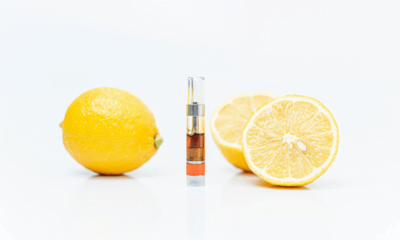With many adults waiting years for a diagnosis and effective treatment of ADHD, can natural remedies such as CBD help manage symptoms?
ADHD is estimated to affect 1.5 million adults in the UK, though only 120,000 currently have a diagnosis.
Meanwhile, the NHS reports that those waiting for diagnosis face a “waiting time crisis”, with many not receiving medical validation for anywhere up to seven years, according to ADHD Action.
The recent spike in the number of adults being diagnosed with ADHD in the UK is widely considered to be linked to the billions of videos on the topic on TikTok resonating with users who were previously unaware of their own neurodivergence.
In fact, there are now more views on ADHD content (3.63b views) than Autism-related content (10.9b), despite the two conditions existing simultaneously for as many as 50% of children diagnosed with either disorder.
While the NHS diagnosis waiting times hit critical levels, experts at Cannaray CBD want to offer adults suffering with symptoms of ADHD, such as Delayed Sleep Phase Syndrome (DSPS) or general difficulties falling asleep, some natural remedies to try to help them while they wait.
READ MORE: ADHD patients say cannabis helps ease symptoms

Four tips to improve sleep hygiene to support DSPS
DSPS is a type of circadian rhythm sleep disorder, meaning it causes issues with your internal body clock. People who suffer from DSPS generally have trouble falling asleep at socially acceptable times, as their sleep patterns are delayed by anything more than two to three hours – even when they’re tired, they will find it impossible to fall asleep.
While often called “night owls”, adults who suffer from DSPS don’t choose to stay awake, they simply cannot fall asleep. In order to try to normalise a person’s sleep schedule, many sleep experts recommend looking at the obvious habits contributing to poor sleep hygiene.
Create a regular sleep routine
Dr Balu, consultant psychiatrist (MBBS, MRCPsych, CCST, MBA) at Cannaray says: “It takes an average of 66 days to create a habit – so there’s no better time to start a new habit than now. Building and maintaining a regular ‘bedtime’ is so important as it creates a routine for the brain and body to latch onto, and relax into over time.
“The schedule can be as simple as a list of things to do at a certain time, like: 10pm, turn off TV. 10:05, brush teeth. 10:10, take CBD oil. 10:15, use pillow spray, etc. That way you’re ticking little tasks off a list, which will give your brain the help it needs to focus on winding down.”
“The biggest thing is following the schedule every night, that’s the only way it can become a habit; you have to do it routinely.”
Avoid electronics before bed
Dr Balu says: “This seems obvious, but how many times do we say we’re going to bed then we end up scrolling TikTok for another hour before we actually try to sleep? You want to plug your phone in to charge, then leave it alone.”
“You need to remove all electrical stimuli from interacting with your brain, so pick up a book, or write in a journal, or work on that 1000-piece puzzle. Anything but electronics!”
Cut out stimulants from midday
“While many adults who live with ADHD maintain that stimulants like caffeine don’t affect them in the same way as neurotypical people”, Dr Balu says.
“It’s still not a great idea to drink too much of it if sleep is the end goal.
“You really shouldn’t be consuming any kind of stimulants, whether that be sugar, caffeine, alcohol or tobacco, a good eight to ten hours before you want to go to sleep, as they will do the exact opposite of what you want.”
Consider bright light therapy
“Bright lights like SAD lamps and sunrise alarms are great for mimicking the natural effects of the sun on your internal body clock, so sitting in close proximity to a bright light box for 30 mins after you wake up will kick start your internal clock.”
“Lots of people who suffer with DSPS struggle to regulate their body clocks, which is why they tend to stay awake longer and rise a lot later in the day than what’s considered ‘normal’. Using bright light therapy in the morning can also help to advance your internal clock, which will in turn, help them fall asleep sooner”, Dr Balu finishes.
This article was supplied by Cannaray CBD, to read more on how to sleep better, visit: https://cannaraycbd.com/journal/article/how-to-sleep-better/

 News6 months ago
News6 months ago
 Science5 months ago
Science5 months ago
 Industry6 months ago
Industry6 months ago
 News6 months ago
News6 months ago
 News5 months ago
News5 months ago
 Health5 months ago
Health5 months ago
 News5 months ago
News5 months ago
 Health3 months ago
Health3 months ago











